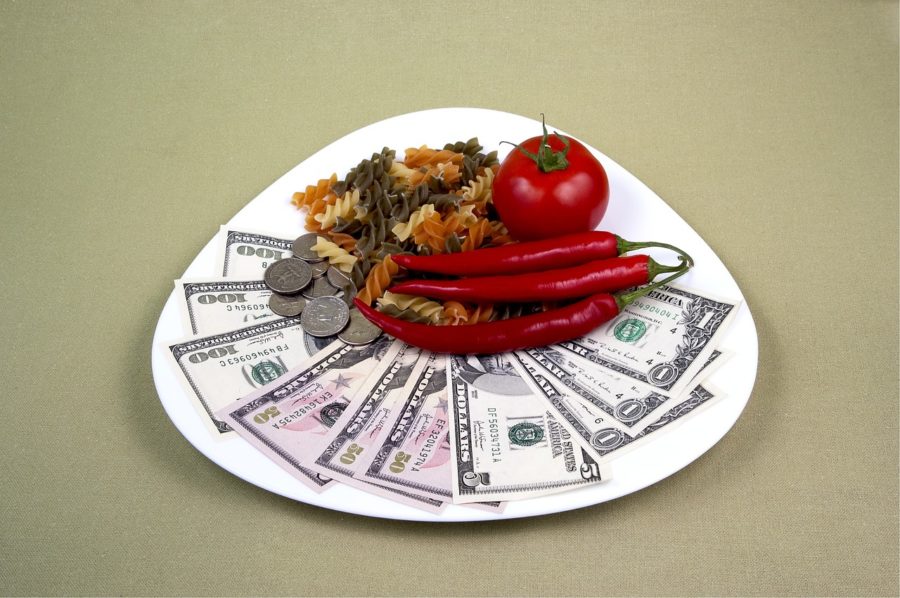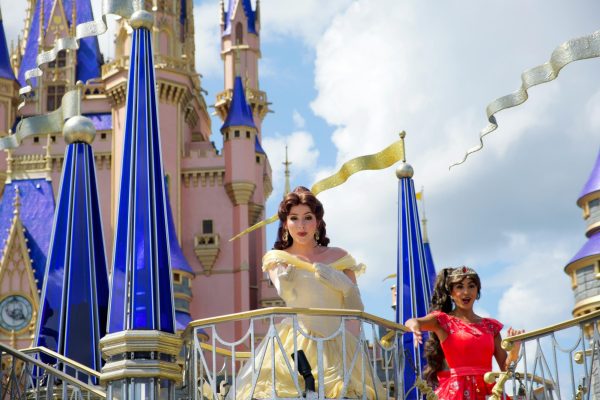The Provocative Force of “Eat the Rich”
“When the people shall have nothing to eat, they will eat the rich.” This phrase, supposedly attributed to notable French Revolution philosopher Jean-Jacques Rousseau, has gained traction once again in our post-pandemic society. Commonly shortened to just ‘eat the rich’, this article will delve into the origin, meaning and evolution of this polarizing expression, explore the relevance of it in the 21st century, and discuss its current prominence in the minds of the masses, popular culture and political ideologies.
Origin and meaning
During the French Revolution, following the creation of the First Republic, there was a period of time called the Reign of Terror. During that 10 month window, French revolutionaries brutally rebelled against the monarchy in an attempt to establish order – as a result, an estimated 27,000 people were killed. With the king himself executed, there was a great deal of hostility between affluent aristocracy and commoners – and in addition to that, not enough food to go around. Citizens quickly realized they could neither consume rights nor freedom, and started spreading speculations that merchants were selling tainted food in order to save the best for the wealthy.
In his ten-volume History of the French Revolution, author Adolphe Thiers used a quotation from the political philosopher Jean-Jacques Rousseau to capture the essence of the chaos at the time: Rousseau allegedly stated, “When the people shall have nothing more to eat, they will eat the rich.” For Rousseau, the idea of devouring the rich was an exaggeration of the struggles of the starving public, inspired by an actual famine – the French Revolution’s greatest driving force.
Evolution, shown in social media
Fast forward more than two hundred years, ‘eat the rich’ has yet again made a comeback in the 21st century, magnified by the rising income inequality worldwide as a result of the pandemic. In March 2022, American economist Joseph Stiglitz wrote in the Scientific American, that “the pandemic’s most significant outcome will be a worsening of inequality, both within the U.S. and between developed and developing countries.”
During 2020-2021, more than 100 million people fell below the poverty line, facing mass unemployment and the exponential increase of living expenses. However, during that same horrific timespan, “global billionaire wealth grew by $4.4 trillion USD” (Contagious).
Whilst hundreds of millions in less fortunate circumstances spent sleepless nights fretting about how to make ends meet, Elon Musk’s wealth increased more than ninefold, and Jeff Bezos’ wealth surpassed $170 billion (2022 Forbes World’s Billionaires List). As a matter of fact, only ten of the most affluent people in the world made almost $540 billion (Miriam Elshiekh, Medium). It’s more than obvious that not everyone has been affected by the COVID-19 pandemic in the same way.
During the heights of the COVID-19 outbreak, Amazon workers have provided individuals all around the world with essential supplies. These employees felt as though their personal health and safety were being traded for Bezos and Amazon’s ever-increasing riches.
Alarmingly, Amazon responded to these cries with a $2 hourly salary rise and the implementation of minimal measures, such as temperature checks. Unfortunately, Bezos’ influence-peddling and manipulation were not new anomalies.
Despite how the context of the 18th century rhetoric ‘eat the rich’ included copious amounts of moldy bread, this same phrase still resonates in the 21st century: particularly highlighting how the top 1 percent of society has profited off the suffering of others.
Distressed by the stark contrast in standards of living, many flocked to social media platforms to express their dismay. ‘Eat the rich!’ first gained mass traction on Twitter, and quickly spread to other social media platforms. As of the 27th of May 2023, #eattherich has garnered more than 204,862 posts on Instagram and more than 910 million views on Tiktok. With many using memes and humor to address the drastic inequalities, as stated by Anna Presnall, #eattherich “isn’t a call to cannibalism, but rather a call to action”.
Monopoly leaders – the new villains
In December 2022, Elon Musk was welcomed on stage by comedian Dave Chappelle in San Francisco. However, Musk was met with clamorous booing for ten minutes straight. It could be said that this was a result of his contentious takeover of Twitter – but undoubtedly, also due to how we no longer publicly celebrate wealth in the same way.
As a reflection of our time, pop culture provides a good insight into the demands and the interests of the people. For that reason, more and more films have portrayed the rich as villains in their narratives. In 2009, the topic of the Berlin Film Festival was ‘Capitalism as Villain’, where at least 11 dramas and documentaries were on this topic. An abundance of films released from 2019-2022 have been described as ‘eat the rich movies’ by critics, such as: Joker, Parasite, The Menu and Glass Onion: A Knives Out Mystery. An episode of TV show ‘You’ aired on the 9th of February 2023 even features an ‘Eat the Rich killer’.
According to Tom Beckman, the Global Chief Creative Officer at Weber Shandwick (one of the largest public relations networks in the world): “Suddenly, the rich are not the aspirational icons of our dreams, they are the villains in our films.” Fiona Sturges, writer and university lecturer has described this phenomenon as the ‘succession effect’ in the Financial Times in December 2022.
Millennials, gen-Z, and political ideologies
The internet and popular culture have provided many younger generations with a political education, especially surrounding the injustices of late-stage capitalism. Late millennial to early Gen-Z journalist Chanté Joseph states that learning about race, identity and class on the microblogging site Tumblr has widened her worldview immensely.
It’s certain that many young people also feel the same way. In a report published by the Institute for Economic Affairs (IEA) in July 2021, nearly 80% of young Britons blame capitalism for the recent housing crisis in the UK. In addition to that, 75% “believe the climate emergency is specifically a capitalist problem” and 72% “back sweeping nationalization”. Not only that, 67% of all surveyed “want to live under a socialist economic system” (Owen Jones, the Guardian). This does not necessarily mean that today’s younger generations are devoted socialists; but according to the Guardian, “but of those millennials familiar with Karl Marx, half have a positive view of him, compared with 40% of generation X and just 20% of baby boomers.”
Given that the younger generations are the ‘futures of tomorrow’, many say that this could signify the start of social, political and economic upheaval. As seen throughout history, such changes are bound to occur.
Backlash
However powerful the ‘eat the rich’ slogan may seem, no radical statement is immune from retaliation. The IEA’s Kristian Niemietz thinks that ‘eat the rich’ has almost become a fashion statement, where “(young) people can construct a socialist persona for image purposes” on social media. In fact, he thinks that this movement is due to the masses’ generalization of what they think of as a biased market – and in return, this makes them more ‘susceptible to socialist ideas’.
German historian and socialist Rainer Zitelmann also states that this phrase is attributed to classism, and therefore dehumanizes the people wealthier than the speaker.
Even though ‘eat the rich’ is commonly attributed as being associated with far-left politics, left-wing critics argue that the middle class who lead relatively comfortable lives use the phrase in a highly hypocritical manner.
Generalization arising from ignorance
If one were to search #eattherich on any major social media platform, it would seem that the public’s interpretation of this phrase has (indeed) strayed hypocritically from its original purpose. As aforementioned, ‘eat the rich’ sheds light on how the top 1 percent of society has profited off the suffering of others. However, many content creators and users alike decipher ‘the rich’ as: anyone of the upper middle class or above who are slightly more well off. A multitude of TikToks have been made about who to spare when ‘eating the rich’, with users commenting the names of public figures and actors in a humorous manner.
As stated by Miriam Elshiekh: “Although the movement originally used humor and memes to call out elites, the message became clouded as anyone with disposable income were now new targets.”
Heavy emphasis needs to be placed back on how ‘eat the rich’ targets the ‘mega rich’: billionaires. The main issue with the interpretation of the phrase on social media is ignorance. Users have jumped to conclusions before even trying to analyze the situation.
It needs to be said that there’s no such thing as an ethical billionaire; as seen from Bezos’ abuse of influence during the pandemic, there’s a crime behind every great fortune. Hence, ‘eat the rich’.
It’s expected that every saying will become slightly distorted as it’s reverberated over and over again, especially on social media. It’s a lesson we all learned when playing the game ‘Telephone’ as children. Nevertheless, despite misinterpretation, the ‘Eat the Rich’ movement still fulfills its age-old purpose: drawing attention to drastic disparities between social classes.






